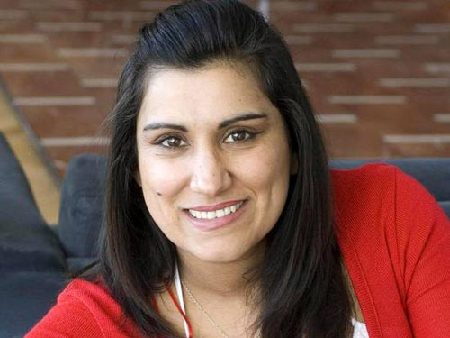|
查看原文
In many ethnic minority communities, the pressure to give birth to sons rather than daughters can be overwhelming – and sometimes heartbreaking. Cahal Milmo talks to Britons with experience of the cultural bias against female babies.
Rupi remembers her second pregnancy with tearful dread. Having given birth to a girl two years before, she had expected the further love and support of her husband and his family. Instead, she came under extraordinary pressure to have an abortion.
The 29-year-old British Indian, who has asked The Independent not to reveal her real name, found out during a private scan that the child she was expecting was a girl. It was at this point that congratulations turned to consternation.
She told The Independent: "It was a completely traumatic time. I had this child growing inside, a beautiful thing. But my family weren't happy, they wanted me to have a son. My husband's family were not wealthy and a son is so cherished.
"I'll never forget. My mother-in-law sat me down one evening and said I should think about making the pregnancy go away. It was clear what she meant. When I told my husband what she had said, he said it was something we could consider. I was shocked. I felt as if my baby had become dirty, shameful."
After seeking the help of a community group near her home in Slough, Rupi, who comes from a Sikh family, persuaded her family that she should keep her daughter, now a bouncing three-year-old girl. But she has no plans for further children.
Other outcomes are not so happy.
In communities of different faiths and ethnicities across Britain, there is evidence that women are seeking abortions both in the United Kingdom and abroad on the sole basis that their unborn child is a girl.
The Independent has been told of at least 12 cases in the Midlands where women have travelled to India to terminate a female foetus. Whether voluntarily or as a result of pressure from spouses and relatives, mothers-to-be are shaping - or being compelled to shape - their families to service the notion that a son is culturally, economically and socially more desirable than a daughter, according campaigners and clinicians within these communities.
From Chinese to Pakistani couples, Muslim to Hindu to Sikh, the practice is deeply rooted, springing from reasons such as the desire for a male to continue the family name, or the wish to avoid the swingeing financial burden of paying a dowry of up to £25,000 per daughter. More ethereal prejudices include the belief that if a son - and not a daughter - administers the last rites to a father, then the patriarch's soul is speeded to heaven.
Community workers told The Independent that there may be dozens of female foetuses a year in Britain which are being terminated because of "son preference".
Jasvinder Sanghera, a leading campaigner on forced marriages and honour violence against women, who founded the charity Karma Nirvana, said: "I think almost any Asian woman you talk to would say she feels a pressure to have a male child. There will be many, many Asian women out there who are pregnant and who are thinking, 'please, please let it be a boy'.
"If you have a daughter, these women will tell us, they feel they have let their husband or in-laws down. In those circumstances, women are seeking abortions if they can find out that the child is a girl."
Asked what proportion of families would have a preference for a son, she added: "Without a shadow of doubt, more than 50 percent."
An investigation by the Daily Telegraph last year exposed two doctors who were apparently willing to authorise abortions based on gender, though the Crown Prosecution Service decided to press charges.
Seema, 36, an Afghan based in London who works with women's groups, said: "It goes on. Often it is a woman who is brought from Afghanistan and the tribal areas where these beliefs are very strong. It is not frequent but we hear of doctors who will sign off on the papers."
Dr Sudhir Sethi, a NHS consultant paediatrician who specialises in child health in Leicester, told The Independent he knew of 12 families in the city where mothers had travelled to India to terminate a female foetus.He said: "There are no reliable and absolute figures to say how many [are travelling abroad for terminations] but we can say that they are more than just a few, to say the very least.
Illustrating the problem, the doctor cited the words of a woman from Britain's Punjabi community, the region of northern India where selective abortion is most prevalent: "They go on holiday with a belly and a baby inside, and they return with no baby and no belly."
The terminations are also taking place within Britain, according to community workers.
While many NHS hospitals have a policy of refusing to divulge the gender of a foetus until after the 24-week abortion limit, private scans are available.
And yet the cultural underpinning to the desire for a son runs deeply across some of Britain's ethnic minorities and indeed extends among white Britons, where so-called "family balancing" is increasingly cited as a reason for the use of emerging technologies such as sperm washing to select the gender of a child.
As one worker for a helpline for Chinese women put it: "Why shouldn't a woman be allowed to decide whether the child she carries is a girl or a boy? There is a right for the woman to control her body."
The desire to avoid the payment of dowry, the practice of a bride's family providing either physical goods or cash for the "transfer" of a daughter, is cited as a particular reason why a daughter is considered a liability.
Mrs Sanghera said: "These attitudes are completely alive and kicking in our communities. And yet nobody is speaking out about them. We should be in no doubt at all, this preference for sons and pressuring a woman to achieve that end is part of the same set of problems as honour abuse and forced marriage. "
The charity said it was also aware of cases where women who have given birth to multiple daughters are simply divorced and a new wife sought who can provide a son.
Judy Barber, a senior call handler for the charity, said: "Many callers report that in their families and communities the birth of a boy is much more welcome than that of a girl. Two callers said that when a girl is born it is 'like a funeral'."
There is evidence that similar attitudes have been continued among second and third generation offspring of migrants. A BBC survey found that two thirds of young British Asians believe that families should live according to the concept of "honour", with nearly one in five saying physical punishment of a woman for certain behaviour was justifiable.
Mrs Sanghera said: "The links back to South Asia are very strong and we see very often that these attitudes are transferred from one generation to the next. This is not a prejudice that can be quickly dismantled."
|
查看譯文
在英國(guó)很多少數(shù)民族地區(qū)��,生兒而非生女的壓力可謂勢(shì)不可擋,有時(shí)也會(huì)讓人心痛不已���。在此��,卡赫爾·米爾莫向英國(guó)人講述她所經(jīng)歷的女嬰文化偏見���。
據(jù)英國(guó)《獨(dú)立報(bào)》網(wǎng)站報(bào)道,盧比(Rupi)至今還記得二度懷孕時(shí)的痛苦���。自兩年前誕下一女�,她曾期待丈夫和家人更為深厚的關(guān)愛���,然而�,她卻處在前所未有的墮胎壓力之下��。
這位要求《獨(dú)立報(bào)》不要透露其真實(shí)姓名的29歲印度裔英國(guó)人���,在一個(gè)私人胎檢掃描中發(fā)現(xiàn)自己的腹中胎兒正是一個(gè)女孩兒���。也正是從這一刻起�����,所有的祝福都變成了驚愕。
她告訴《獨(dú)立報(bào)》:“這真是一個(gè)痛苦的時(shí)刻�����,腹中正在成長(zhǎng)的孩子是如此美麗��,但是家人卻并不為此感到欣喜��,他們想讓我生一個(gè)男孩����。我丈夫的家庭并不富有,因此他們迫切希望能得到一個(gè)男孩兒�。”
“我永遠(yuǎn)也不會(huì)忘記——某天晚上���,婆婆坐在我身旁并告訴我應(yīng)當(dāng)考慮著終止這次妊娠����。我非常清楚她的意圖何在���,當(dāng)我將這一切告訴丈夫時(shí)�,他卻表示我們可以考慮一下這個(gè)問題。當(dāng)時(shí)的我十分震驚����,腹中的孩子也仿佛變得如此骯臟,羞恥��?����!?/p>
在尋求了附近一個(gè)社區(qū)團(tuán)體的幫助之后����,來自錫克教家庭的盧比終于說服了家人保留住腹中的女兒,而現(xiàn)在�����,她已成長(zhǎng)為一個(gè)活蹦亂跳的3歲小女孩兒了�。但盧比卻沒有生孩子的進(jìn)一步打算。
其他的結(jié)果卻并沒有如此欣慰�����。
有證據(jù)顯示���,在英國(guó)境內(nèi)不同信仰和不同種族的聚居區(qū)中�����,一旦經(jīng)檢測(cè)腹中胎兒是女孩的話����,孕婦們便會(huì)在英國(guó)或是海外其他國(guó)家接受墮胎的命運(yùn)����。
據(jù)《獨(dú)立報(bào)》了解,在中部地區(qū)至少有12例孕婦前往印度終止女胎的例證�。根據(jù)社區(qū)內(nèi)社會(huì)活動(dòng)家和臨床醫(yī)生所了解的情況,不論是自愿還是來自配偶或親屬的壓力���,準(zhǔn)媽媽們都會(huì)在家庭的影響下自發(fā)或被迫形成這樣一種觀念——在文化����,經(jīng)濟(jì)和社會(huì)層面上��,生男比生女更可為取��。
從中國(guó)到巴基斯坦夫妻�����,從穆斯林到印度教再至錫克教,生男的觀念是如此根深蒂固��,其原因在于男孩兒能繼承家族姓氏抑或希望推脫掉女兒價(jià)值2萬5千英鎊嫁妝的財(cái)政負(fù)擔(dān)��。更多虛無縹緲的偏見還包括男孩將能主持父親最后的死亡儀式�����,并能讓先祖的靈魂加速進(jìn)入天堂����。
社區(qū)工作者向《獨(dú)立報(bào)》表示,在英國(guó)���,一年之內(nèi)便有很多女胎因“重男輕女”觀念而終止了生命���。
包辦婚姻以及婦女家暴主要斗爭(zhēng)者,慈善機(jī)構(gòu)Karma Nirvana創(chuàng)始人賈希文德·桑赫拉(Jasvinder Sanghera)表示:“我認(rèn)為幾乎所有的亞洲女性都會(huì)表示自己承擔(dān)著生育男孩的壓力����。目前也會(huì)有很多很多懷孕的亞洲女性正在日思夜想著:“求求老天賜予我一個(gè)男孩兒吧?��!薄?/p>
“如果你孕有一個(gè)女孩兒的話��,這些婦女就會(huì)告訴我們����,她們似乎讓丈夫和公婆特別失望����,在這種情況下,一旦孕婦們發(fā)現(xiàn)自己的胎兒是女孩的話�,她們就會(huì)選擇墮胎的方式終止妊娠?�!?/p>
在被問及有多少比例的家庭會(huì)更想要男孩時(shí)����,她補(bǔ)充道:“毫無疑問,至少也會(huì)有50%���?����!?/p>
在去年《每日電訊報(bào)》(Daily Telegraph)進(jìn)行的一項(xiàng)調(diào)查中�,他們揭露出兩名基于性別選擇而批準(zhǔn)墮胎的醫(yī)生,皇家檢控署曾決定對(duì)二人支持墮胎的行為起訴�。
目前在當(dāng)?shù)貗D女組織工作的36歲阿富汗籍婦女Seema表示:“墮胎還會(huì)繼續(xù)進(jìn)行的,通常情況下����,這些婦女都是來自阿富汗或是重男輕女觀念十分強(qiáng)大的部落地區(qū)。這種現(xiàn)象并不特別頻繁����,但是我們也曾聽說醫(yī)生們最終會(huì)在墮胎文件上簽字?����!?/p>
萊斯特(Leicester)兒童保健顧問塞提醫(yī)生(Dr Sudhir Sethi)向《獨(dú)立報(bào)》表示:據(jù)他了解���,僅在萊斯特便有12名孕婦前往印度終止胎兒妊娠��。他說道:“目前并沒有絕對(duì)可靠的數(shù)據(jù)來表明有多少孕婦選擇出國(guó)墮胎�����,但是我們可以這樣認(rèn)定����,出國(guó)墮胎的孕婦不在少數(shù)?!?/p>
在表明當(dāng)下的問題之后,醫(yī)生引用了英國(guó)旁遮普(Punjabi)社區(qū)�,也是印度北部地區(qū)墮胎最為普遍的地區(qū)一名婦女的言論:“她們挺著大肚子懷著孩子便出國(guó)度假了,回來時(shí)肚皮卻空空如也�。”
根據(jù)社區(qū)工作者的說法��,終止妊娠的案例同樣也在英國(guó)境內(nèi)上演著��。
雖然很多醫(yī)院在24周的墮胎限制下拒絕透露胎兒的性別���,但是私人醫(yī)院的胎兒掃描卻依然處于工作之中。
基于文化影響下對(duì)兒子的渴望�����,英國(guó)一些少數(shù)民族依然保持著濃厚的重男思想�,在這些地區(qū),所謂的“家庭平衡”越來越多地成為生男的理由�,包括精子洗脫在內(nèi)日益興起的新技術(shù)也幫助人們選擇孩子的性別。
正如中國(guó)婦女幫助熱線的一名員工說道:“為什么不能允許女性自己決定腹中男孩女孩的命運(yùn)����?女人擁有權(quán)力來控制自己的身體�����。"
為了避免支付嫁妝費(fèi)用��,新娘家庭提供實(shí)物或現(xiàn)金來“嫁女”的做法被認(rèn)為是承擔(dān)養(yǎng)女責(zé)任的特殊原因���。
桑赫拉女士表示:“這些態(tài)度正在潛滋暗長(zhǎng)并在社會(huì)中逐漸蔓延,然而卻無人對(duì)之提出異議��。毋庸置疑�,這種重男輕女的觀念以及它所施加給婦女的壓力與支持家暴,包辦婚姻都是同樣層面的問題����。”
慈善機(jī)構(gòu)表示他們也關(guān)注到育有幾個(gè)女孩的家庭更容易遭遇離婚��,而丈夫們尋求新任妻子只為求得一子�����。
慈善機(jī)構(gòu)高級(jí)接線員朱迪·巴伯(Judy Barber)表示:“很多訪問者都表示生男比生女更能在家庭和社區(qū)受到歡迎�。兩名訪問者均表示女孩兒出生時(shí)就像是葬禮一樣沉重。”
有證據(jù)表示在第二代���、第三代的移民者中�,重男輕女的態(tài)度一如既往地持續(xù)著����。BBC的一項(xiàng)調(diào)查表明三分之二的亞裔英國(guó)年輕人均認(rèn)為家庭應(yīng)當(dāng)為“榮譽(yù)”而生存,而有將近五分之一的人表示因某些行為而體罰女性是正當(dāng)?shù)摹?/p>
桑赫拉女士說道:“南亞的重男觀念非常根深蒂固�����,我們常常會(huì)發(fā)現(xiàn)這些態(tài)度會(huì)代代相傳下去�,因此�����,重男輕女的偏見并不會(huì)在社會(huì)中快速瓦解��?����!?/p>
(譯者 Enchant_ed 編輯 丹妮)
掃一掃��,關(guān)注微博微信
 
|

